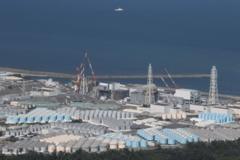With tensions boiling around the construction of the Ring of Fire, Prime Minister Mark Carney’s ambitious "One Canadian Economy Act" has become a focal point for debate on indigenous rights in Canada. Jeronimo Kataquapit, a member of the Attawapiskat First Nation, continues to protest the mineral-rich area, which has been designated a "special economic zone" for mining without robust indigenous consultation.
The Act, seen as part of Carney's early agenda amidst a trade stand-off with the United States, is positioned to unlock substantial investments in regions like the Ring of Fire, estimated to hold C$90 billion in mineral deposits. However, this legislative move raises alarm bells for indigenous groups who fear their rights over ancestral lands could be compromised. Kataquapit expressed his frustration, stating "it's about consent," as communities grapple with decisions that could dictate their futures.
While Ontario leaders and the federal government are eager to push development, environmental advocates remain sceptical. They argue that shortcuts in environmental assessments threaten sustainability practices rooted in indigenous knowledge, as highlighted by Indigenous leader and environmentalist Abram Benedict. He stressed that any development must consider all aspects of the ecosystem—something he argues is often overlooked.
The need for indigenous consultation is constitutionally mandated in Canada, requiring prior consent for any projects impacting indigenous territories. However, Sean Fraser, the federal justice minister, characterized the consultation process as lacking a full veto power for First Nations, which has prompted critique from experts like Pamela Palmater. She argues that true consultation involves accommodating concerns and achieving consent—not just listening.
The stakes are high, as history shows when negotiations fail, the costs can be immense. Court records indicate that more than C$50 million was spent on policing protests against pipeline developments. In light of this, Carney is under pressure to involve indigenous leadership in shaping the economic framework.
In a show of unity, leaders from various indigenous groups, including the Assembly of First Nations, are calling for immediate consultations to address their concerns about the legislation. Yet, Chief Alvin Fiddler from the Nishnawbe Aski First Nation has expressed skepticism about Carney’s law, asserting that it won’t be applicable in their territories, and has called for the resignation of the Minister of Indigenous Affairs.
As nine First Nations have launched a constitutional challenge against both provincial and federal legislation, tensions are running high. These communities argue that recent laws empower the government with unchecked authority to approve projects, disregarding their rights and way of life.
While some new leaders express a desire for collaboration with the government for sustainable development, sentiment across the board is mixed. Supporters from Alberta's Treaty Six Nations, while typically pro-development, feel sidelined by the current engagement strategy. John Desjarlais, an executive from the Indigenous Resource Network, remains hopeful, advocating for economic opportunities that align with indigenous stewardship principles.
As this legislative battle unfolds, the framework and fate of future development in Canada hang in the balance, with calls for inclusive dialogue echoing louder than ever.
The Act, seen as part of Carney's early agenda amidst a trade stand-off with the United States, is positioned to unlock substantial investments in regions like the Ring of Fire, estimated to hold C$90 billion in mineral deposits. However, this legislative move raises alarm bells for indigenous groups who fear their rights over ancestral lands could be compromised. Kataquapit expressed his frustration, stating "it's about consent," as communities grapple with decisions that could dictate their futures.
While Ontario leaders and the federal government are eager to push development, environmental advocates remain sceptical. They argue that shortcuts in environmental assessments threaten sustainability practices rooted in indigenous knowledge, as highlighted by Indigenous leader and environmentalist Abram Benedict. He stressed that any development must consider all aspects of the ecosystem—something he argues is often overlooked.
The need for indigenous consultation is constitutionally mandated in Canada, requiring prior consent for any projects impacting indigenous territories. However, Sean Fraser, the federal justice minister, characterized the consultation process as lacking a full veto power for First Nations, which has prompted critique from experts like Pamela Palmater. She argues that true consultation involves accommodating concerns and achieving consent—not just listening.
The stakes are high, as history shows when negotiations fail, the costs can be immense. Court records indicate that more than C$50 million was spent on policing protests against pipeline developments. In light of this, Carney is under pressure to involve indigenous leadership in shaping the economic framework.
In a show of unity, leaders from various indigenous groups, including the Assembly of First Nations, are calling for immediate consultations to address their concerns about the legislation. Yet, Chief Alvin Fiddler from the Nishnawbe Aski First Nation has expressed skepticism about Carney’s law, asserting that it won’t be applicable in their territories, and has called for the resignation of the Minister of Indigenous Affairs.
As nine First Nations have launched a constitutional challenge against both provincial and federal legislation, tensions are running high. These communities argue that recent laws empower the government with unchecked authority to approve projects, disregarding their rights and way of life.
While some new leaders express a desire for collaboration with the government for sustainable development, sentiment across the board is mixed. Supporters from Alberta's Treaty Six Nations, while typically pro-development, feel sidelined by the current engagement strategy. John Desjarlais, an executive from the Indigenous Resource Network, remains hopeful, advocating for economic opportunities that align with indigenous stewardship principles.
As this legislative battle unfolds, the framework and fate of future development in Canada hang in the balance, with calls for inclusive dialogue echoing louder than ever.




















